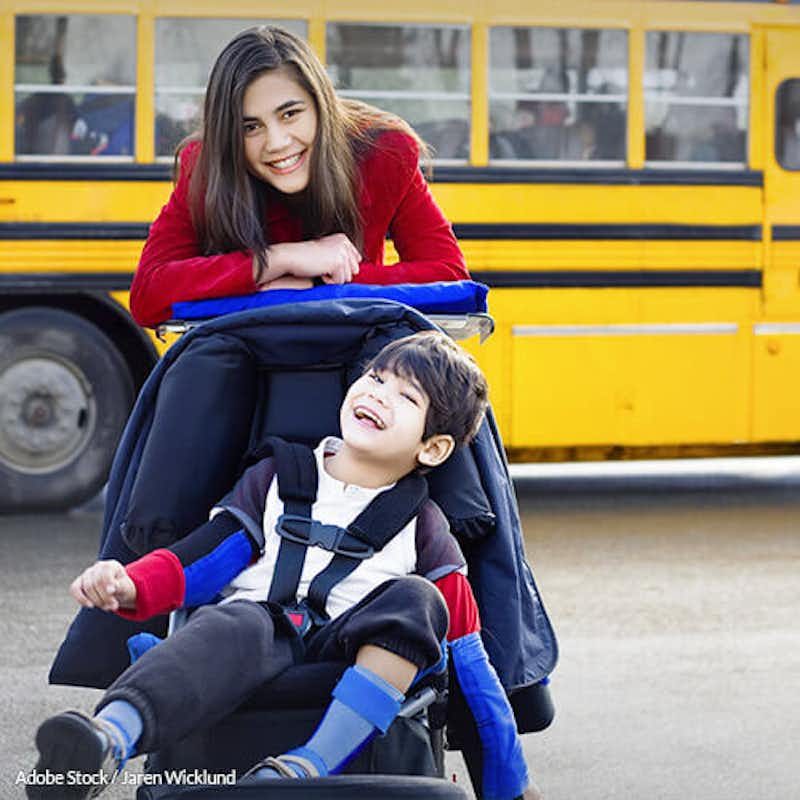People with Special Needs Deserve Dignified Diaper-Changing Spaces
7,533 signatures toward our 30,000 Goal
Sponsor: The Autism Site
Tell the United States Access Board to update the ADA Accessibility Guidelines!

Diapers aren't just needed for infants or toddlers learning to potty train. There are many older children and adults with special needs, as well as elderly adults who, for whatever reason, must wear them as well.
Many people know this. Far fewer think about the potential, day-to-day implications this could have on both the individual and their caregiver. For example, what happens when an older child or adult in a diaper wants to go out in public yet needs to be changed by a third party? They can no longer fit on changing tables for babies, so what do they do?
This may seem small, but it is a tremendous issue for those with special needs and their caregivers, as the options are limited and often degrading. [1] Many caregivers have no choice but to lay the person on the dirty, germ-ridden bathroom floor. Others have to change the person in their cars or elsewhere in public. Still others either avoid going out for long stretches of time or reduce their fluid intake so as to prevent the individual from being forced to sit in their own waste for any extended period of time.
In any case, this is distressing, degrading, and all in all a serious violation of a person's innate, human dignity. People with special needs deserve more and deserve better.
The Americans with Disabilities Act (ADA) says that "public accommodations must comply with basic nondiscrimination requirements that prohibit exclusion, segregation, and unequal treatment." [2] If people without disabilities had to lie on the bathroom floor or wait until they got home to perform their most basic bodily function, that would be an enormous outrage. It should also be the case for people with special needs. Indeed, this is not an issue of luxury but an issue of necessity and equality for all.
Luckily, there is a solution. If public venues' restrooms were required to be equipped with height-adjustable changing tables for individuals greater than 40 pounds,[3] that would be an enormous relief and help for both caregivers and people with special needs.
Tell the United States Access Board to update the ADA Accessibility Guidelines to require facilities to provide adult changing tables for those with special needs.
Bibliography
[1] Advocates Support Efforts To Install Public Changing Tables For Disabled Adults. (2017, May 05). Retrieved June 29, 2017, from http://www.npr.org/2017/05/05/527092464/advocates-support-efforts-to-install-public-changing-tables-for-disabled-adults
[2] (n.d.). Retrieved June 29, 2017, from https://www.ada.gov/cguide.htm
[3] Agrawal, S. (2008). A Truly Accessible Public Bathroom. Retrieved June 29, 2017, from http://www.articles.complexchild.com/jan2009/00096.pdf
The Petition:
Dear United States Access Board,
Across the country, many children, teens, and adults are living with special needs that make them unable to use a toilet regularly, for whatever reason. These individuals must wear diapers and many must be changed by a third party caregiver.
The ADA Accessibility Guidelines provide regulations that mandate accommodation to people with disabilities in public spaces, such as restroom facilities. However, it currently does not account for the fact that many Americans are in diapers. Caregivers must often resort to laying the person on the dirty, germ-ridden bathroom floor in order to change them, or they will skip the changing altogether and keep trips outside the home short so as to avoid forcing the person with special needs to sit in their own waste for longer than is right or comfortable.
This is degrading and a violation of human dignity. This is by no means equal treatment, and people with special needs deserve better than this.
We therefore implore you to update the ADA Accessibility Guidelines so that public places will be required to equip their restroom facilities with height-adjustable changing tables for individuals greater than 40 pounds. This small change would be a big step in increasing equality for all.
Sincerely,